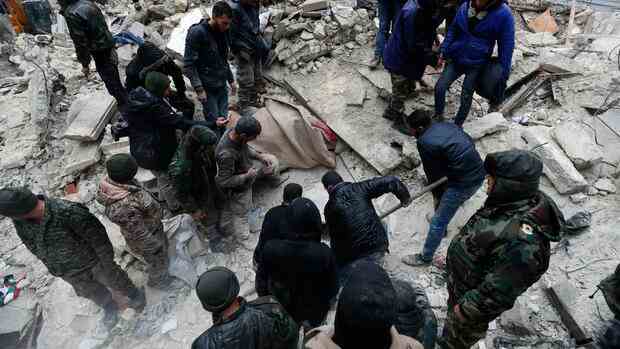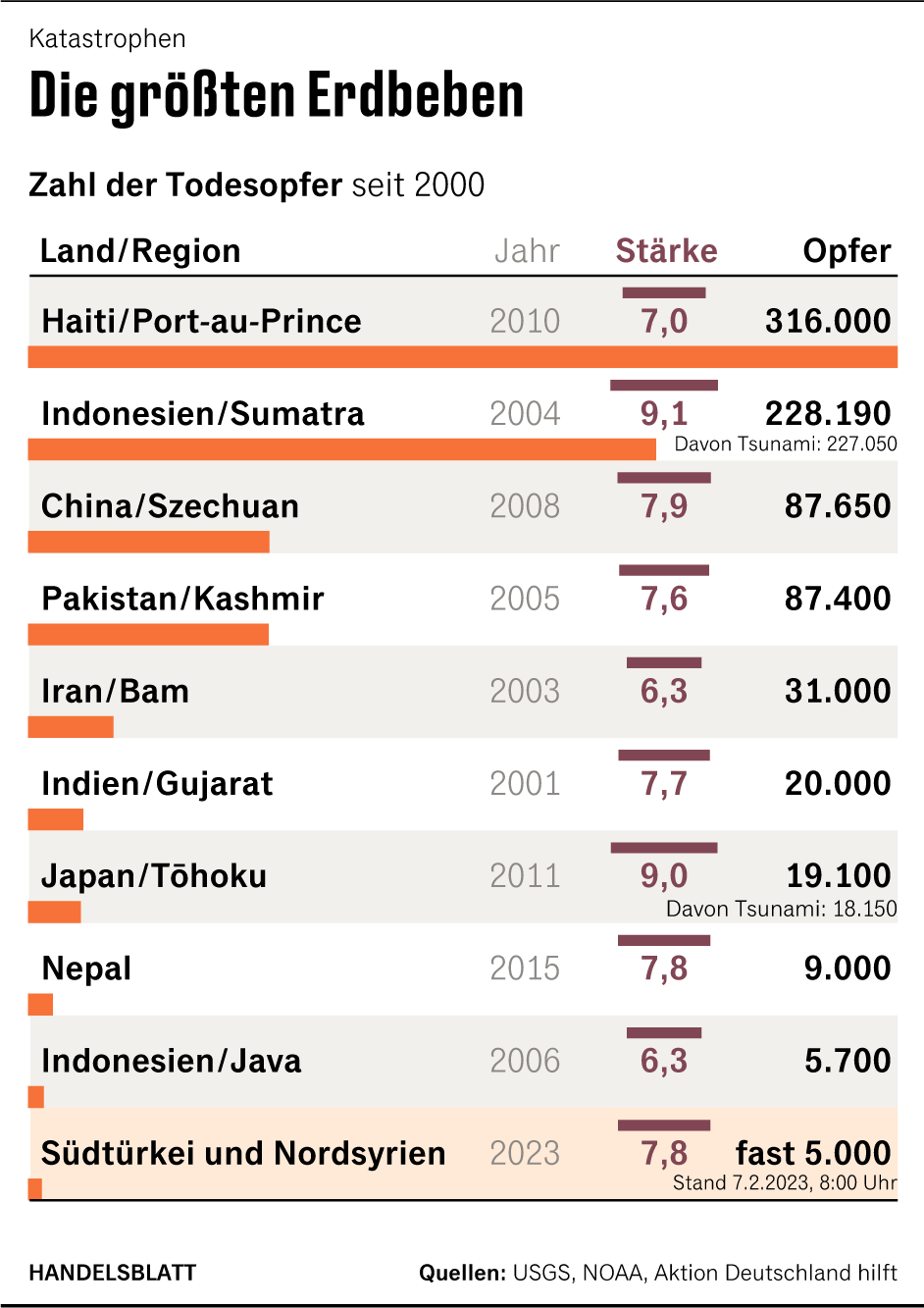Ankara When an earthquake caused the worst devastation in southern Turkey and northern Syria early Monday morning, an offer caused a stir: Israel agreed to send aid to neighboring Syria. The two countries have been officially at war for years.
According to authorities and emergency services, the number of dead in Syria has now risen to at least 1,602, with thousands injured. In total, more than 5,000 people died in the disaster in both countries. But the terrible consequences of the earthquake could have a positive side effect: several states are offering humanitarian aid to Syria – and could thus open a door for negotiations to end the civil war that has been going on for more than a decade, which has politically isolated the country.
On Monday, Israeli Prime Minister Benjamin Netanyahu initially announced that he would help the victims of the earthquake in Syria. Israeli government officials confirmed that medicines, blankets and tents would be sent.
Such offers prove that humanitarian catastrophes can also be an opportunity for diplomatic efforts. A good example of this is Turkey. After an earthquake in 1999, archenemy Greece at the time sent rescue teams to the neighboring country. The political situation between Ankara and Athens then eased for several years.
Syria could now also benefit from these political thaw measures known as “earthquake diplomacy”. In the past few months, some states in the region had come closer to Syria despite the civil war. For example, politicians from Egypt and the United Arab Emirates traveled to the country. There were also meetings with Turkish government officials. Now the relief efforts could lead to overcoming old enmities.
But in the case of Syria, things are not as easy as they were between Greece and Turkey. Because the Syrian ruler Bashar al-Assad is internationally ostracized for his actions against his own people. Hundreds of thousands died because Assad’s troops murdered their own countrymen. In addition, the regime, with Russian support, still carries out airstrikes in the north of the country. The civil protection organization White Helmets, run by the opposition, has already called for airstrikes to be stopped after the earthquake.
Situation in northern Syria is complicated
In the meantime, countries such as Algeria, Iraq, the United Arab Emirates and Egypt have sent aid supplies to the affected areas by plane. Iran announced that it would support both Turkey and Syria. The European Commission’s Directorate-General for European Civil Protection and Humanitarian Aid also reported that it was organizing search and rescue operations through its humanitarian aid programs and sending relief supplies to affected regions.
>> Read here: Back to Syria or to Europe – what Erdogan intends to do with millions of refugees
Getting help to the victims, however, is a challenge. While Turkey has trained and experienced rescue workers and professional state disaster relief, on the Syrian side both rescue and relief efforts are likely to prove far more difficult due to the civil war.
The situation is particularly complicated in the north of the country, where the earthquake caused the greatest damage. The Idlib region is controlled by opposition rebels. A section of the border with Turkey is largely under the control of Turkish and Russian troops. Further inland, the central government in Damascus holds power.
Important UN aid deliveries from Turkey to Syria have been interrupted for the time being. United Nations Office for the Coordination of Humanitarian Affairs spokeswoman Madevi Sun-Suona said deliveries are currently not possible due to damaged roads and other logistical problems. “We can not yet say when it will continue.”
Meanwhile, the Syrian Arab Red Crescent, which is a member of the International Red Cross and Red Crescent Movement, said it would also send aid to opposition-held areas. This can be mediated by UN organizations, said head Chalid Hbubati at a press conference. Aid should be provided in all areas of Syria.
Meanwhile, Syria has urged the US and EU to lift their sanctions. His country urgently needs help now, says Hbubati. “I call for the sanctions against Syria to be lifted. That’s the most important thing for us,” he said. The sanctions have been in place since 2011, when Syrian President Assad cracked down on protests, leading to the civil war that continues to this day.
More: Erdogan is using the dispute over NATO’s northern expansion for his election campaign

